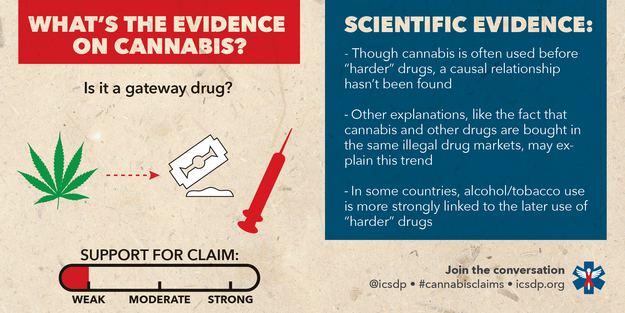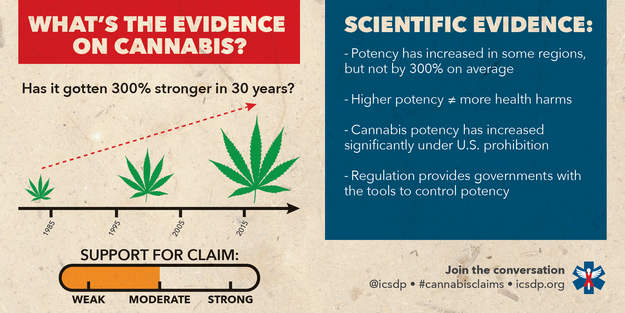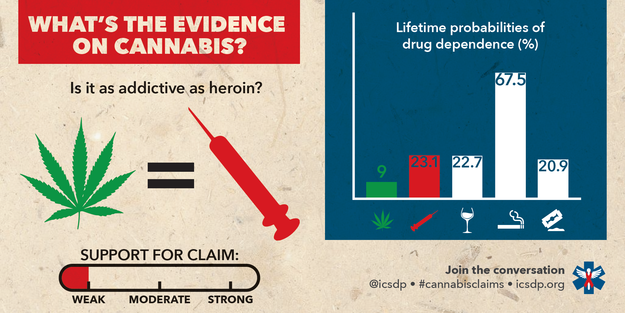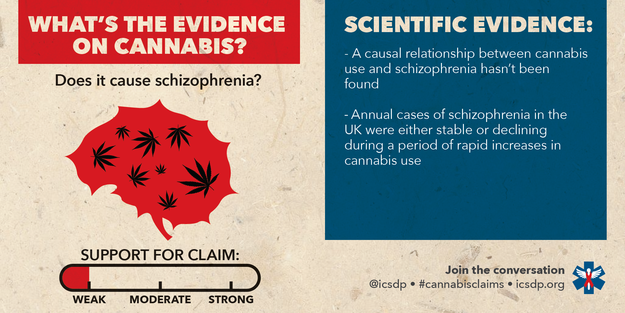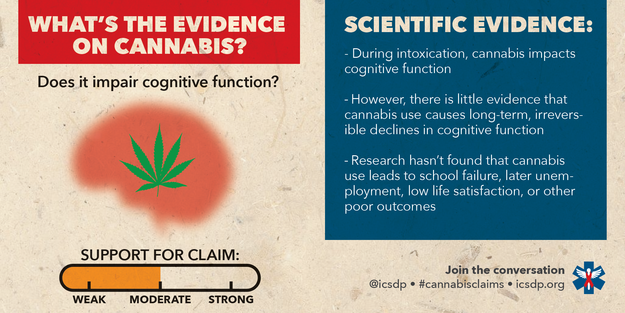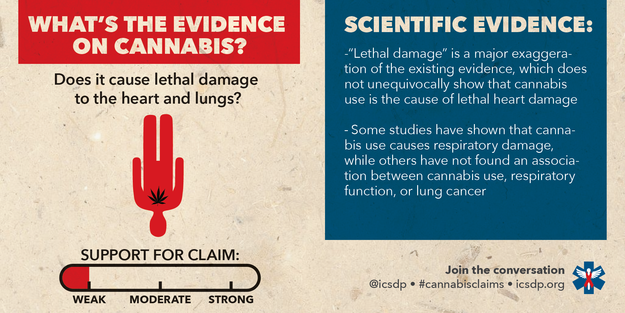Several claims about the dangers of pot have been doing the rounds with no one sure of either their validity or origin. This post from Buzz Feed News collates the evidence from real scientific research on marijuana to test some of these high profile marijuana myths.
Pot is a gateway drug. Pot is as addictive as heroin. These and other claims are constantly repeated. But are they true? A group of scientists has some answers.
Researchers at the International Centre for Science in Drug Policy spent the past year examining the best and current scientific evidence about marijuana to see which of the most common claims about pot stand up to scrutiny.
They’ve turned that work into Using Evidence to Talk About Cannabis, a new project that puts scientific evidence into plain language so people can understand, and act on, the truth.
“Over the past year we’ve been working diligently on scanning the news media and online conversations about cannabis to identify the most often repeated or high-profile claims related to its use and regulation,” says Dr. Dan Werb, director of the ICSDP.
They took the list of claims and reviewed all relevant scientific research. Their findings were then peer reviewed.
In the end, Werb says, “we found that not one of the claims about cannabis that we identified were strongly supported by scientific evidence.”
Here are six of the most common claims about marijuana use, and what the current scientific evidence says about them.
1. No, pot is not a gateway drug.
Their review of research did turn up evidence that marijuana use “often precedes the use of ‘harder’ illicit drugs, such as cocaine and heroin.”
But the real question is whether marijuana use causes or increases the likelihood that someone uses other drugs. On that front they found that “there is no evidence to suggest that the use of cannabis causes or increases the risk that an individual will move on to use other drugs.”
2. Marijuana has gotten 300% stronger over the past 30 years — but only in some places.
The THC levels of marijuana have increased in recent decades. But the amount of that increase differs by location, according to their findings.
“In the United States, recent studies have cited average increases of 3% to 12% in THC content over the past three decades, which is equivalent to a 300% increase,” according to the researchers. “Significant increases have not been detected for European countries other than the United Kingdom and the Netherlands.”
They also caution that the THC level is not the only factor that determines potency.
“For example,” they write, “the common practice of mixing cannabis with tobacco effectively dilutes potency to levels below what would be experienced if it were smoked pure.”
Yet another reason to avoid tobacco products!
3. No, marijuana is not as addictive as heroin.
Recent research found that “less than 1 in 10 people who use cannabis across their lifetime will progress to cannabis dependence, meaning that more than 90% do not become addicted.”
In contrast, the probability of becoming addicted to heroin is estimated at 23.1%.
“The evidence tells us that the vast majority of individuals who experiment with cannabis will experience no serious adverse effects and that legal psychoactive drugs like alcohol and tobacco are much more harmful and addictive,” said Dr. Evan Wood, Canada research chair in inner city medicine at the University of British Columbia, who worked on the project with the ICSDP.
4. No, marijuana does not cause schizophrenia.
There is no evidence to suggest a causal link between marijuana use and schizophrenia, according to the researchers.
They noted that “while people who develop schizophrenia may have previously used cannabis, it is difficult to equivocally state that this use is what caused them to develop the condition.”
Dr. Werb also pointed to a recent U.K. study which found that “during a period when cannabis use increased, schizophrenia rates stayed the same — suggesting that there is no causal link.”
5. Marijuana impairs some cognitive functions, but the effects vary by person.
When you’re high, you will likely experience some impact on cognitive functions such as learning and memory. But the researchers said that it varies by person, and that “there are gaps in the scientific evidence on the full range of effects and their reversibility.”
Overall, they said, “the evidence did not support a causal relationship between cannabis use by young people and various psychosocial harms.”
6. No, marijuana does not cause lethal damage to the heart and lungs.
There is no conclusive evidence of a link between smoking marijuana and experiencing lethal heart and/or lung issues. But it’s also an area the researchers say needs more study.
“Studies have found that low, occasional cannabis use does not adversely affect the lungs,” they noted. “However, the impact of long-term cannabis smoking on respiratory function is less clear. Some studies have reported that smoking cannabis is associated with various respiratory-related problems, whereas others have found no strong association with several lung conditions.”
More detailed information, including a list of the papers that were reviewed and cited by the ICSDP, is available here.
Source: Here’s What We Actually Know About The Dangers Of Pot – BuzzFeed News

